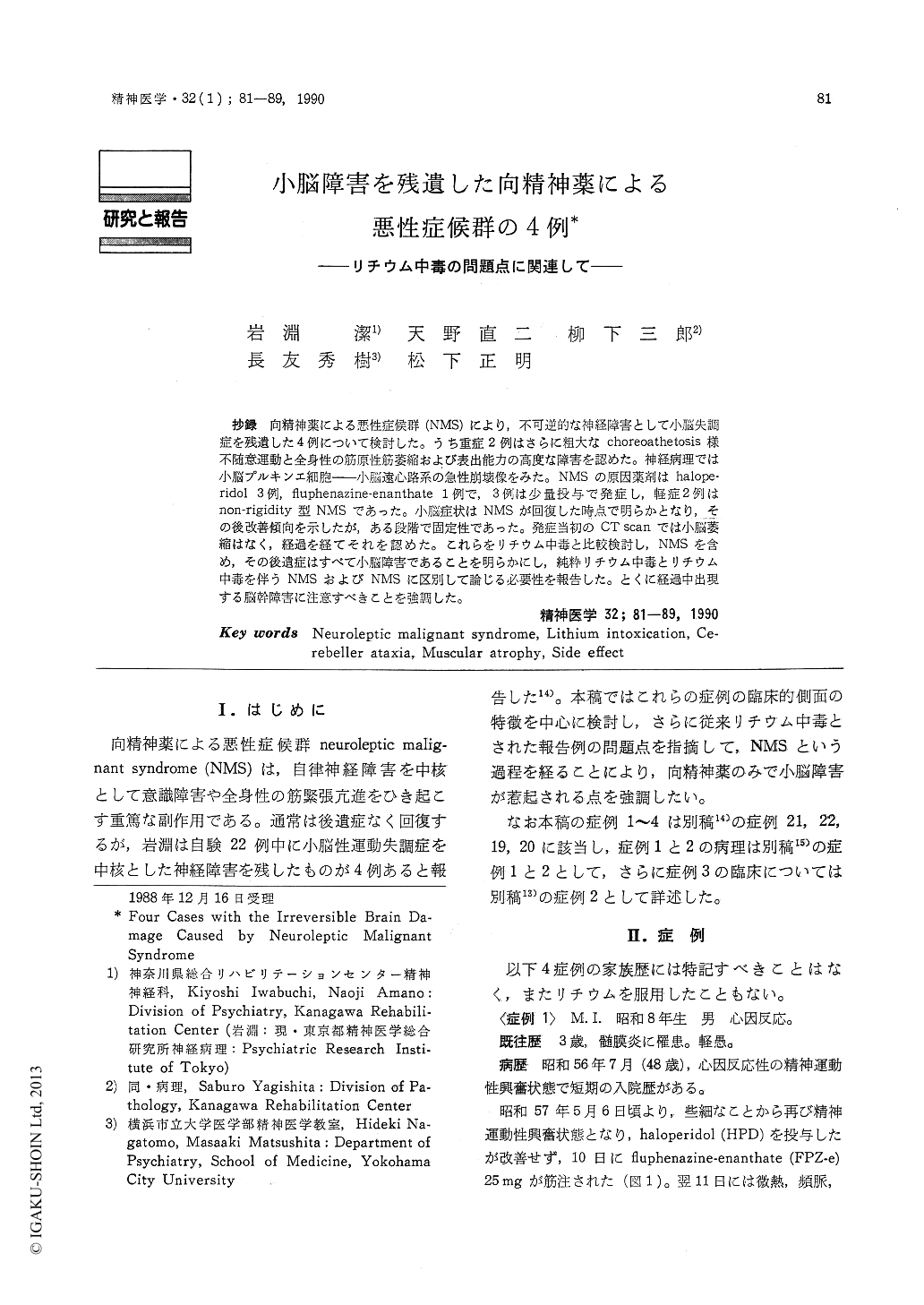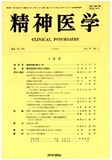Japanese
English
- 有料閲覧
- Abstract 文献概要
- 1ページ目 Look Inside
- サイト内被引用 Cited by
抄録 向精神薬による悪性症候群(NMS)により,不可逆的な神経障害として小脳失調症を残遺した4例について検討した。うち重症2例はさらに粗大なchoreoathetosis様不随意運動と全身性の筋原性筋萎縮および表出能力の高度な障害を認めた。神経病理では小脳プルキンエ細胞-小脳遠心路系の急性崩壊像をみた。NMSの原因薬剤はhaloperidol 3例,fluphenazine-enanthate 1例で,3例は少量投与で発症し,軽症2例はnon-rigidity型NMSであった。小脳症状はNMSが回復した時点で明らかとなり,その後改善傾向を示したが,ある段階で固定性であった。発症当初のCT scanでは小脳萎縮はなく,経過を経てそれを認めた。これらをリチウム中毒と比較検討し,NMSを含め,その後遺症はすべて小脳障害であることを明らかにし,純粋リチウム中毒とリチウム中毒を伴うNMSおよびNMSに区別して論じる必要性を報告した。とくに経過中出現する脳幹障害に注意すべきことを強調した。
The authors reported four cases who developed irreversible brain damage after neuroleptic malignant syndrome (NMS) without lithium administration. We pointed out that lithium intoxication should be classified into two groups; (1) pure lithium intoxication, (2) NMS with lithium intoxication. Judging by the results of this study and a review of the literature, we emphasize that not only lithium but neuroleptica alone might cause irreversible brain damage. The clinical feature which persisted was cerebellar ataxia. Though the precise mechanism is uncertain, it is thought that not only the striato—nigral system, but also the cerebellum including its efferent system plays an important role in generating NMS.

Copyright © 1990, Igaku-Shoin Ltd. All rights reserved.


